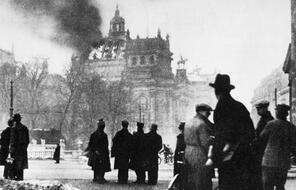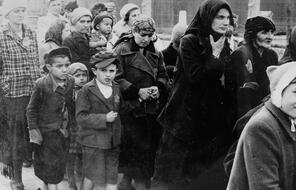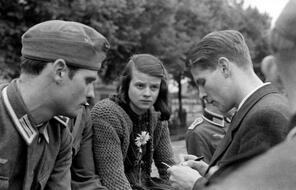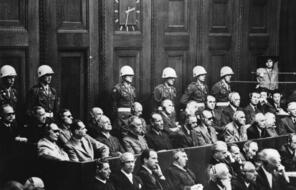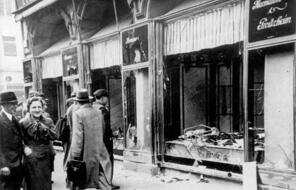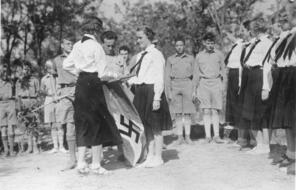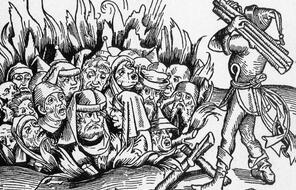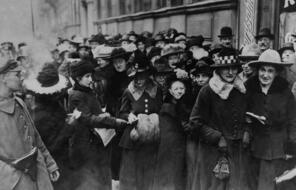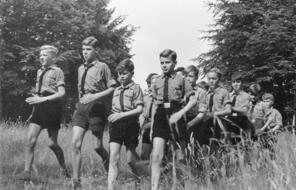Do You Take the Oath? (Abridged)
At a Glance
Language
English — USSubject
- History
- Human & Civil Rights
- The Holocaust
Soldiers were not the only ones required to take the new oath that pledged allegiance to Hitler. One German recalled the day he was asked to pledge loyalty to the regime:
I was employed in a defense plant (a war plant, of course, but they were always called defense plants). That was the year of the National Defense Law, the law of “total conscription.” Under the law I was required to take the oath of fidelity. I said I would not; I opposed it in conscience. I was given twenty-four hours to “think it over.” In those twenty-four hours I lost the world. . . .
You see, refusal would have meant the loss of my job, of course, not prison or anything like that. (Later on, the penalty was worse, but this was only 1935.) But losing my job would have meant that I could not get another. Wherever I went I should be asked why I left the job I had, and when I said why, I should certainly have been refused employment. Nobody would hire a “Bolshevik.” Of course, I was not a Bolshevik, but you understand what I mean.
I tried not to think of myself or my family. We might have got out of the country in any case, and I could have got a job in industry or education somewhere else.
What I tried to think of was the people to whom I might be of some help later on, if things got worse (as I believed they would). I had a wide friendship in scientific and academic circles, including many Jews, and “Aryans,” too, who might be in trouble. If I took the oath and held my job, I might be of help, somehow, as things went on. If I refused to take the oath, I would certainly be useless to my friends, even if I remained in the country. I myself would be in their situation.
The next day, after “thinking it over,” I said I would take the oath with the mental reservation, that, by the words with which the oath began, “Ich schwöre bei Gott,” “I swear by God,” I understood that no human being and no government had the right to override my conscience. My mental reservations did not interest the official who administered the oath. He said, “Do you take the oath?” and I took it. That day the world was lost, and it was I who lost it.
First of all, there is the problem of the lesser evil. Taking the oath was not so evil as being unable to help my friends later on would have been. But the evil of the oath was certain and immediate, and the helping of my friends was in the future and therefore uncertain. I had to commit a positive evil there and then, in the hope of a possible good later on. The good outweighed the evil; but the good was only a hope, the evil a fact. . . . The hope might not have been realized—either for reasons beyond my control or because I became afraid later on or even because I was afraid all the time and was simply fooling myself when I took the oath in the first place . . .
There I was in 1935, a perfect example of the kind of person who, with all his advantages in birth, in education, and in position, rules (or might easily rule) in any country. . . . My education did not help me, and I had a broader and better education than most have had or ever will have. All it did, in the end, was to enable me to rationalize my failure of faith more easily than I might have done if I had been ignorant. And so it was, I think, among educated men generally, in that time in Germany. Their resistance was no greater than other men’s. 1
- 1From Milton Mayer, They Thought They Were Free: The Germans 1933–45 (Chicago: University of Chicago Press, 1955), 177–81. Reproduced by permission from University of Chicago Press.

